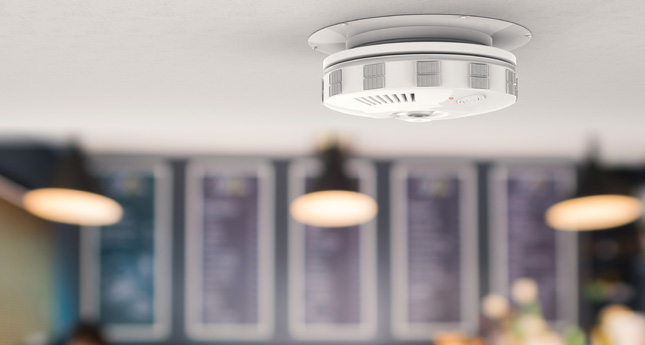

Commercial installers should always brief their customers on the risks of carbon monoxide poisoning and what precautions every company should put in place. Ideal Heat Solutions explains what every business needs to know.
Carbon monoxide (CO) is a colourless, odourless, tasteless poisonous gas often associated with domestic boilers. However, it is important to note that CO poisoning is a risk anywhere where a fuel-burning appliance is used, but especially when they are situated in confined spaces with little ventilation and air flow.
Whether it's fuel-fired heating systems, water heaters, cooking appliances or emergency generation and maintenance operations – such as propane powered floor machines – they are all potential sources of CO.
The heating and hot water to many commercial buildings, such as residential blocks, schools and office blocks, is often provided by a centralised plant room. In many of these buildings, the plants rooms are unoccupied and are somewhat confined spaces.
When CO occurs – be it due to faulty installation, poor repairs or insufficient maintenance – it will rapidly fill the space within the plant room before gradually seeping out into other occupied areas of the building. While the concentration, and therefore the fatality risk, will decrease the further it spreads, the CO can still be concentrated enough to warrant hospital treatment for those who come into contact with it.
CO is virtually impossible to detect without the help of a detector. If businesses do have alarms installed, it is imperative that there is also an emergency plan and trained personnel on hand to deal with the problem. Once the alarm sounds, the problem already has or currently is occurring – the risks are already present and if an untrained member of staff tries to address the issue, there could be serious consequences.
Prevention is better than cure
Whether domestic or commercial, maintenance of all fuel-fired appliances and equipment is vital for the safety of all occupants of the building.
Annual services are essential as they ensure that the appliance is in safe working order and will identify any potential faults or issues. A qualified technician will also be able to check the CO levels, the pressure of the system, potential water leaks and, possibly most dangerously, that there are no gas leaks which could lead to CO, fires and even explosions.
While an annual service will identify any components which are not working effectively, regular cleaning of the system is also highly recommended as it will help keep those components working efficiently.
Businesses should ensure that they have a service and maintenance plan in place. With the help of temporary boilers, regular checks and cleans can be hassle free, causing no disruption to the business or its customers.
Signs of a faulty appliance
Companies should ensure their staff are all aware of the symptoms of possible CO poisoning, as well as signs that an appliance may be leaking CO. Appliances should be inspected straight away if:
CO poisoning: the symptoms
Symptoms of CO poisoning are very similar to flu, with the exception of a high temperature. In CO cases in commercial premises, symptoms will usually be prevalent at work and subside away from the building (particularly noticeable when away for a week or two).
Exposure to carbon monoxide can cause the following:
Anyone who experiences these symptoms and believes that CO poisoning could be the cause, should seek medical advice immediately and state that you believe you may have been exposed to carbon monoxide.
Ideal Heat Solutions can provide cover such as emergency commercial boiler hire during a planned shutdown, boiler breakdown or while repairs are being carried out.
If you'd like to keep up-to-date with the latest developments in the heating and plumbing industry, why not subscribe to our weekly newsletters? Just click the button below and you can ensure all the latest industry news and new product information lands in your inbox every week.